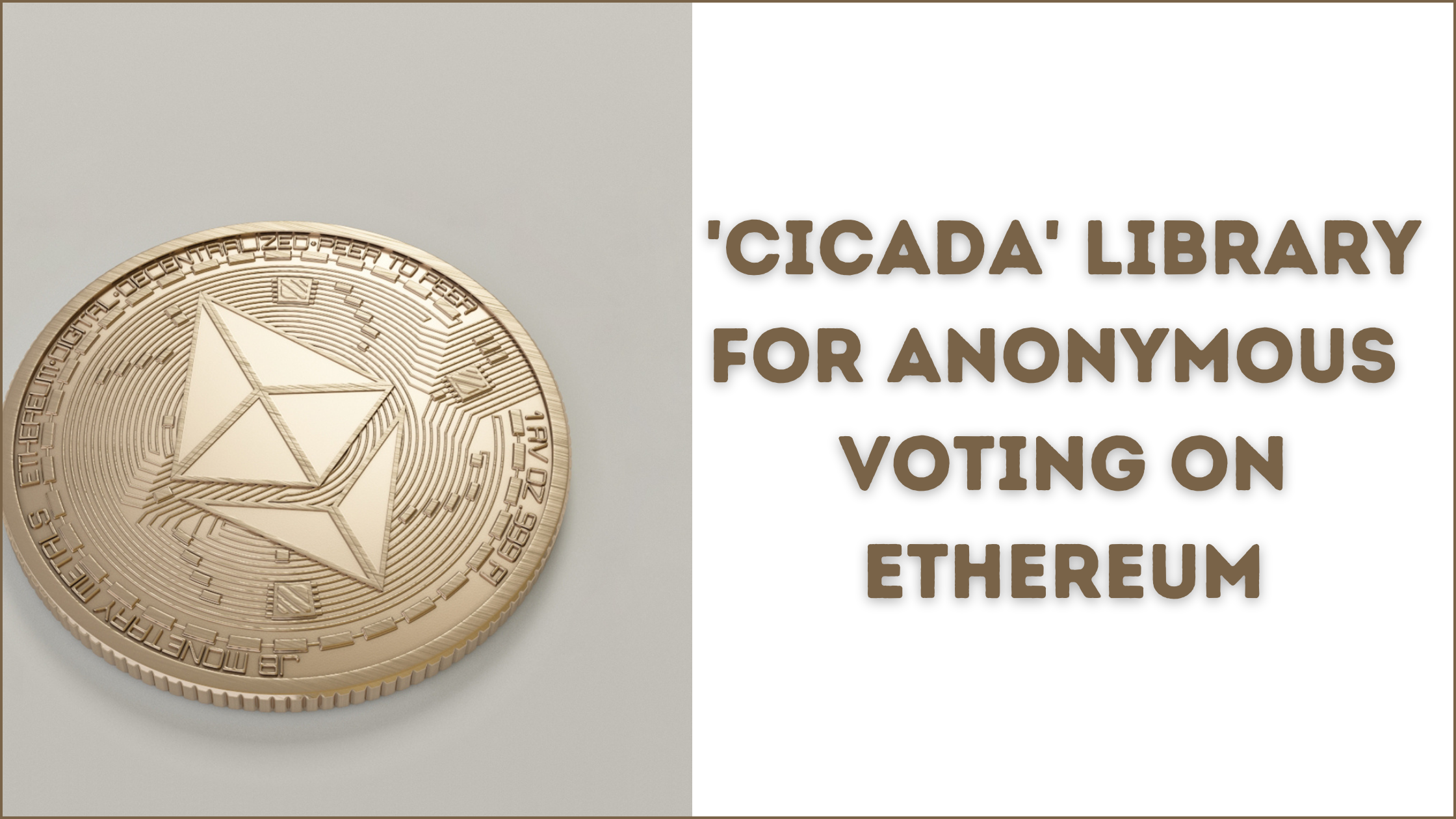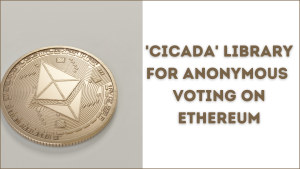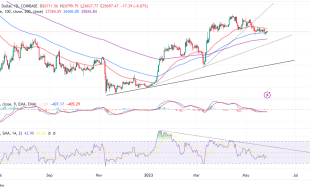Join Our Telegram channel to stay up to date on breaking news coverage
Andreessen Horowitz has released a product called Cicada, which enables anonymous Ethereum voting.
The product ensures that each vote is recorded throughout the poll. With zero-knowledge group membership systems, Cicada protects voter identity.
Andreessen Horowitz Integrates Cicada into Ethereum for Anonymous Voting
Andreessen Horowitz’s Cicada product joins Ethereum to provide anonymous voting. Users can now use Cicada for private on-chain voting through Andreessen Horowitz’s Solidity library. The integration ensures that the voter’s identity remains undisclosed, with zero-knowledge group membership systems like Semaphore. Michael Zhu, an engineer at Andreessen Horowitz, shared these details in a blog post.
Additionally, Cicada relies on time-sensitive cryptography puzzles, where personal values can be encrypted and decrypted only after a specific duration. These time-lock puzzles have existed since 1996. Still, recent advancements, such as ‘homomorphic’ time-lock puzzles proposed by cryptographers Giulio Malavolta and Aravind Thyagarajan, make it easier to combine and solve multiple puzzles while concealing individual values.
“Each choice is represented by a boolean value, either “1” or “0.” However, this approach exposes a vulnerability as attackers can intentionally encode their votes. For instance, they can increase their influence by encoding a value like “100.” This will undermine the integrity of the voting process.”
Cicada uses homomorphic puzzles to enable vote counting regardless of online or offline users. But Andreessen Horowitz researchers faced a challenge in developing a fair voting system. This was while transferring the Malavolta and Thyagarajan method to the blockchain.
To address this, each choice had to be encoded as a boolean value of “1” or “0” to prevent attackers from manipulating their voting power. As a solution, Cicada requires voters to submit a zero-knowledge proof of ballot validity and individual ballots. The guarantee ensures the vote was encoded correctly without revealing its contents.
Cicada Provides Temporary Concealment of Votes in Active Polls
Cicada only conceals votes during the active polling period. After the poll closes or the time-lock period expires, the votes contents can be determined by brute-forcing the puzzle. However, this issue can be resolved by integrating Cicada with zero-knowledge group membership systems like Semaphore, Semacaulk, or zero-knowledge state proofs.
Combined with these systems, brute-forcing the puzzle will only reveal that an eligible voter cast a vote without disclosing the specific details or logins used to prove eligibility. Michael Zhu shared a sample contract using Cicada and Semaphore to show this approach.
Decentralized autonomous organizations (DAOs), which govern blockchain applications, often rely on tokens to represent votes. However, this can lead to individuals with many tokens having significant influence. Recent incidents, such as the Tornado Cash attack, highlight the need for DAOs to adopt more democratic voting systems to prevent governance attacks.
More News
Sam Altman’s New Crypto Startup Raises $115 Million
Norway Central Bank Calls for More Regulation of Crypto Assets
Putin Believes Decentralization Will Help Global Economy Be More Resilient
Best Wallet - Diversify Your Crypto Portfolio
- Easy to Use, Feature-Driven Crypto Wallet
- Get Early Access to Upcoming Token ICOs
- Multi-Chain, Multi-Wallet, Non-Custodial
- Now On App Store, Google Play
- Stake To Earn Native Token $BEST
- 250,000+ Monthly Active Users
Join Our Telegram channel to stay up to date on breaking news coverage


